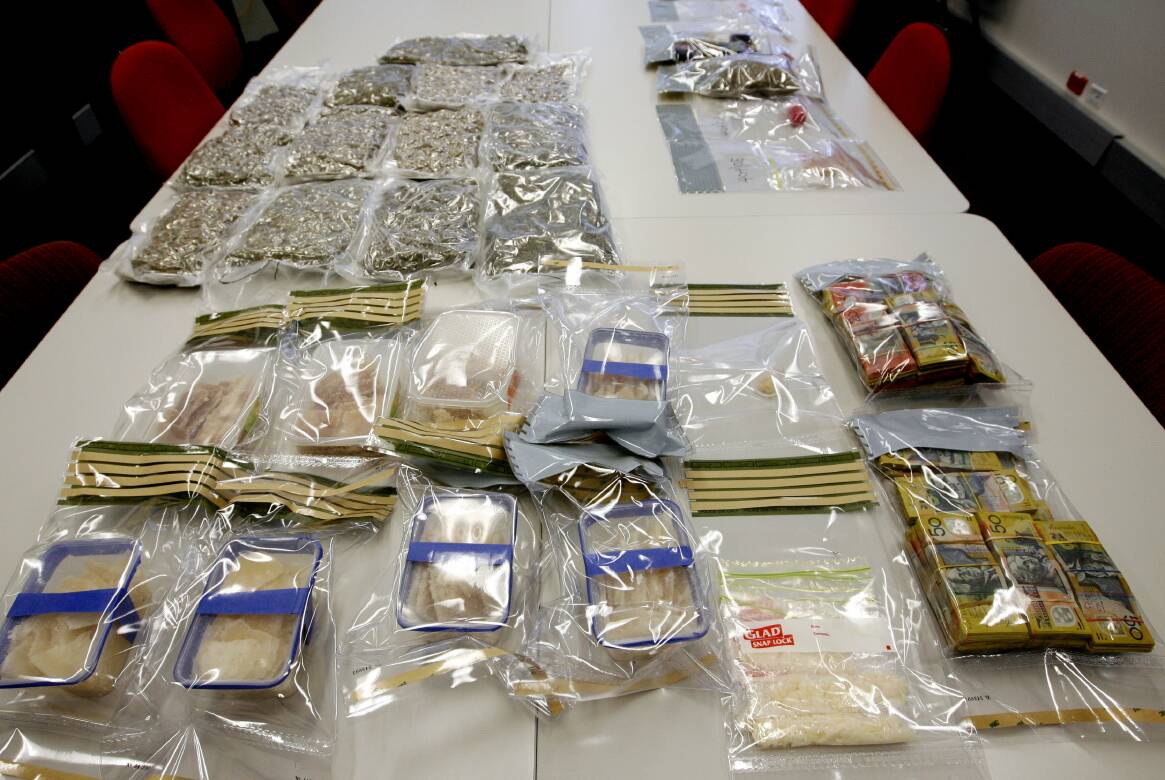
Offences for dealing or trafficking amphetamines have risen by 400 per cent in the Hunter Region over the past five years, crime data shows.
These offences rose from 102 in the year to March 2018 to 509 for the same period this year.
NSW Bureau of Crime and Statistics data show the highest number of offences in the region in the year to March were in Newcastle (228), Lake Macquarie (141), Maitland (55) and Cessnock (51).
This compared to the year to March 2018, when these offences were: Newcastle (51), Lake Macquarie (18), Maitland (9) and Cessnock (4).
Northern Region Commander, Assistant Commissioner Peter McKenna, said police and specialist investigators "target drug suppliers at all levels and in all areas of the community".
"Proactive operations by police into the supply and manufacture of prohibited drugs will continue across the northern region to ensure the safety of the community."
Grant Hume, a Coast Shelter drug and alcohol counsellor, said ice was still a big problem.
"I'm at the coalface and ice use is still just as bad as it was five to 10 years ago," Mr Hume said.
"The old-school heroin user is not very current at the moment. Ice and alcohol are the two main drugs of choice these days."
Mr Hume said he was "seeing guys in their very early 20s with ice habits".
He said the reasons why people get addicted to ice were complex.
"From what I see, there's a lot of dysfunctional family systems that they grew up in. It's the lower socioeconomic demographic mainly.
"With a lot of them, their parents are using as well."
Living pressures also played a role, like the high cost of rent.
"It's basically an escape, so they don't have to think about where they'll sleep or how they'll pay the rent," Mr Hume said.
"People say 'why don't they just stop using', but you've got to understand the back story. Once they're hooked into it, it's really hard for them to hook out."
The rising number of offences for dealing ice in the Hunter were committed over a period when the drug war came under increasing scrutiny and political discussion in NSW.
The Perrottet government remains under pressure from health, community and legal groups to act on the findings of the special commission of inquiry into ice and other amphetamines.
The inquiry made 109 recommendations in a report released in March 2020, including decriminalisation of the "use and possession of prohibited drugs".
At a budget estimates hearing on Monday, NSW Attorney General Mark Speakman said he was "disappointed" by his government's failure to respond to the inquiry, which was "founded on extensive research and evidence".
Newcastle MP Tim Crakanthorp said the government's lack of response to the inquiry was "incredible and disappointing".
"Even the attorney general is disappointed by the government's failure to respond. It's quite amazing," Mr Crakanthorp said. "He's suggesting reforms that seem quite moderate. He's been trying to put up diversionary policies to try to take the pressure off the drug court, with so many people in jail. Yet it would appear he can't get them through cabinet."
He said the issue should be "rational and objective", not political.
Mr Speakman proposed in June that people caught in NSW with illicit drugs for personal use would get a $400 fine or undergo health treatment.
He supported trialling a "pre-court drug diversion" program that gives police the discretion to issue two fines to illicit drug users before they would face court.
"Severe penalties for supply and trafficking would remain in place."
The inquiry made clear that possession and supply of illegal drugs should be treated differently.
"It is imperative that we continue to target the supply of illicit drugs and punish supply, manufacture and other serious drug-related and drug-fuelled crimes with the force of the criminal law," the inquiry report said.
Nonetheless, the inquiry concluded that "even significant seizures and the best efforts by law enforcement" had a relatively small impact on the availability of drug supply.
It also made clear that decriminalisation is "not the same as legalisation".
Under decriminalisation, people caught carrying drugs for personal use would have them confiscated.
The Alcohol and Drug Foundation has urged the NSW government to commit to fund "evidence-based solutions, including the ice inquiry recommendations".
It has also called on the NSW Opposition to "declare its commitment to implement the recommendations" of the special commission in the lead up to the 2023 election.
The Royal Australasian College of Physicians (RACP) recently stated it was "extremely disappointed" that the NSW government continued to "avoid the opportunity to fund the recommendations" from the special commission.
The RACP supported all the recommendations being "adopted in full".
It has urged the government to significantly increase funding of "evidence-based alcohol and other drugs services so that everyone seeking treatment can get it".
It believes that "personal addiction issues" should be "treated as health and social issues, not as criminal ones".
The Newcastle Herald reported on Thursday that Hunter New England had the highest number of methamphetamine-related hospitalisations in NSW in 2019-20.
WHAT DO YOU THINK? We've made it a whole lot easier for you to have your say. Our new comment platform requires only one log-in to access articles and to join the discussion on the Newcastle Herald website. Find out how to register so you can enjoy civil, friendly and engaging discussions. Sign up for a subscription here.





!["[T]he First and Fifth Amendments Require ICE to Provide Information About the Whereabouts of a Detained Person"](https://images.inkl.com/s3/publisher/cover/212/reason-cover.png?w=600)

